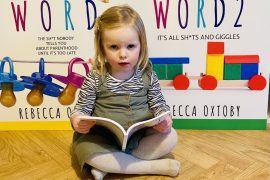It happens most often when our child doesn’t feel connected to us
Counterwill is not always a healthy expression of one’s personal feelings, thoughts and opinions. Counterwill is also a symptom that things aren’t right between us. It is most easily triggered when our child feels least connected to us. In the story above Maddie was feeling distant from her father and closely connected to her friends on social media. When her father pulled her forcefully back into the world of home and responsibilities she reacted with heightened counterwill.
When should I feel concerned about my child’s counterwill?
Counterwill is part of growing up and usually we needn’t feel overly concerned about it.
There is only reason to feel concerned about counterwill when it gets “stuck”. Counterwill is a response that should arise when we feel coerced against our will to do something, but should recede once the moment is passed.
When a child with good connection to us has had time to reflect further on things, they may regret their outburst and decide to repair the relationship.
However, if your child seems to respond to nearly every request or interaction with counterwill without making an effort to repair the damage afterwards, it is a sign the relationship between you is most likely in an unhealthy state.
In order to tell the difference between healthy and unhealthy counterwill, think to yourself, “Is this counterwill protecting an important belief or emergence of their grown up self? Or is it being used to block me from being a part of my child’s life?” Wonder to yourself “What is this counterwill protecting?” If it is always pushing you away from them in order to protect their relationship with peers, digital technologies or other activities in their lives it may be time to start considering how to reconnect with your child and nurture a warmer space between you.
So how am I supposed to respond to counterwill in my child?
Accept. Occasional reactive counterwill is a normal part of a child’s experience of growing up. Try not to take it too personally, and recognise it for what it is. Back off from pressuring the child to do the thing you asked and come at it from another gentler angle once the reactivity has settled down.
Step back. If your child is “stuck” in counterwill it is time to step back from requests, demands and ultimatums and focus instead on the space between you and your child. What has happened to send your child into such a defensive stance? Some time and reflection may be needed as well as a lot of forgiveness and goodwill to create a safer, healthier space between you.
Avoid triggering unnecessary counterwill. If your child feels distant from you, use Dr Neufeld’s maxim Connect Before You Direct. Connecting is something we do many, many times a day with our child with a smile, an understanding hug, a story, a query if they’re alright or a shared hot chocolate watching TV together… But connection doesn’t last. It flees when it’s interrupted by another moment, another event.
Like food, children need connecting experiences many, many times a day.
So make sure you connect before you try to direct them. When you connect before you direct it can get you quite a different response. See how Bill does it in the story below.
Bill and Maddie revisited
Bill looks up impatiently from his breakfast news article across to his 13-year-old daughter.
“Maddie…” he says with an edge to his voice.
Maddie’s head remains buried in her cellphone screen as she scrolls through her notifications for the day so far.
“Maddie” he repeats a little louder. Maddie’s face suddenly lights up with delight. “Dad! I hit 100 likes on the photo that I only posted last night!!”
He can see she’s in another world, far away from the household and its responsibilities. “What was that phrase he read about again?” he wonders to himself… Connect before you Direct.
“Maddie!” Bill repeats louder in a friendly voice. She looks up from her screen. “Show me that photo. It must be amazing.”
Maddie smiles shyly. “Aww Dad. It’s only me and Cilla playing around at school. You wouldn’t like it.”
“Try me” smiles Bill. Hesitantly, Maddie passes the screen across to Bill to reveal a shot of Maddie and her friend Cilla standing under a school sign saying “No throwing balls here.” Both girls have balls in their hands poised as if to throw them with cheeky grins on their faces.
Suddenly Bill’s face creases into a smile in recognition. “It’s counterwill!” he thinks to himself. “At least it’s not directed at me this once!”
“I hope you didn’t get in trouble?” he asks lightly.
“Oh no, Dad. We were just being silly. We didn’t actually throw them. I don’t know why that photo got so many likes… What was it you wanted to say to me before anyway?”
“Oh, I just wanted to remind you about putting out the rubbish. It’s nearly 8am.”
“Oh shoot!” Maddie looks at her watch. “Sorry Dad! I’ll get it out now but I can’t get the recycling clean today. I have a heap of things to do before school.”
“That’s fine, Mads” Bill smiles and ruffles her hair. “You’ll get better at remembering when you get into the routine of it each week. I’ll do the recycling this time round.”
References
1. Erikson, Erik Homburger. Identity and the Life Cycle. Vol. 1. WW Norton & Company, 1980.
2. Neufeld, Gordon. Making Sense of Counterwill. Vancouver: Mediamax Interactive Productions, 2012.
Adrienne Wood is a presenter, educator and parent consultant. She has a particular interest in children presenting with complex behavioural needs. Drawing on her training with the Neufeld Institute, she seeks to help parents and professionals better understand youth from an attachment-based developmental perspective. Adrienne is an experienced high school teacher, lecturer in human development and is mother to two adolescents of her own.
To learn more about Adrienne’s work with parents visit her website.










